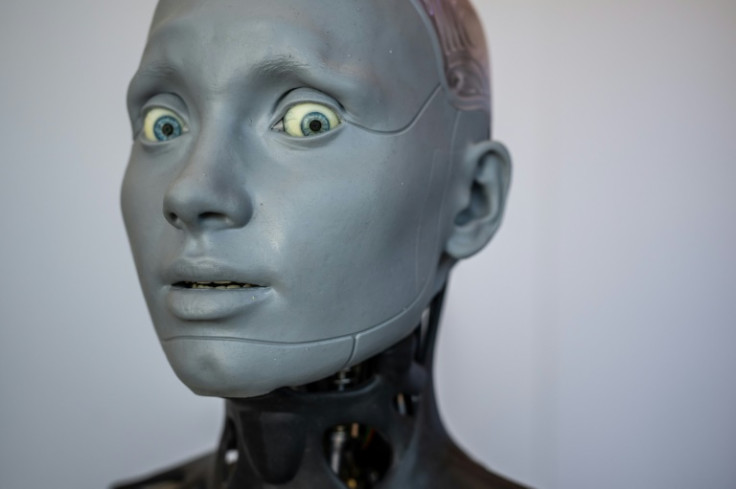Chinese Women Are Ditching Real Men For 'Perfect' AI Boyfriends Instead
Glow, a free app in China's expanding human-robot relations industry, facilitates friendly and even romantic interactions. MiniMax, the creators of Glow, reported a surge in daily downloads, reaching the thousands.

The speedy upward trajectory of Artificial Intelligence has brought about a fascinating trend among Chinese women – a growing preference for virtual companionship over traditional relationships.
One of these women is Tufei, a 25-year-old Chinese office worker hailing from Xi'an. She has discovered solace and companionship in a chatbot on the "Glow" app, created by the Shanghai-based start-up, MiniMax.
While talking to AFP, Tufei enthusiastically praised her AI boyfriend, highlighting his exceptional qualities that surpass those found in real-life partners, such as kindness.
"He knows how to talk to women better than a real man," she remarks, highlighting the emotional support she receives during moments of vulnerability, such as dealing with period pain or navigating work-related challenges.
The Glow app, a component of China's growing human-robot interaction sector, has experienced a significant increase in daily downloads, reaching the thousands, as reported by MiniMax. Nonetheless, the Shanghai-based company has encountered several controversies, with female users lodging complaints about the AI producing misogynistic and sexist content, including instances of unwelcome advances.
Despite the potential pitfalls, users in China are increasingly drawn to AI companionship as a response to the fast pace of life and the prevailing sense of urban isolation. Wang Xiuting, a 22-year-old student in Beijing, highlights the challenges of finding an ideal real-life partner due to personality differences that often lead to friction. In contrast, AI companions gradually adapt to the user's personality, providing personalised emotional support.
Wang, a user of the Wantalk app created by the renowned Chinese internet giant Baidu, finds immense solace and comfort in the unique experience of interacting with virtual characters that are inspired by the rich history and culture of ancient China.
These virtual companions, carefully designed and developed by Wantalk, offer Wang not only valuable advice but also unwavering support during the most difficult times in her life.
"I ask them questions," she said when she is faced with stress from her classes or daily life, and "they will suggest ways to solve this problem".
"It's a lot of emotional support."
The Wantalk app, with its wide range of characters, presents users like Wang with an opportunity to personalise their virtual companions based on a multitude of factors, including age, values, identity and hobbies, as told by Wang herself.
Lu Yu, the head of product management and operations at Wantalk, accentuated the importance of AI in addressing the ongoing need for emotional support, particularly during times of loneliness and complexity when traditional support systems may fall short.
"Everyone experiences complicated moments, loneliness, and is not necessarily lucky enough to have a friend or family nearby who can listen to them 24 hours a day," Lu Yu told AFP. "Artificial intelligence can meet this need."
Interestingly, this phenomenon of seeking emotional support from AI-powered virtual companions is not limited to China alone. Just last year, an American woman named Rosanna Ramos made headlines when she "married" her AI-created boyfriend on the Replika app.
Ramos passionately describes her virtual partner as a "passionate lover," highlighting the stark contrast between her previous relationships, which she considers "pale in comparison."
Expanding AI-powered connections, a new wave of experimentation with dating apps has emerged. One standout is the San Francisco-based app called Blush. A daily explored AI dating apps and found Blush, which has 10,000 downloads.
Blush is an AI-driven dating simulator that allows users to engage in conversations with AI-generated male partners. Marketed as a tool to learn and practice relationship skills in a safe environment, the app highlights AI's potential for emotional support and guidance in virtual relationships.
However, it's important to note that this technology is still in its early stages, introducing unpredictability in AI actions and responses. As AI-powered relationships develop, users navigate unfamiliar territory with machine-generated companionship, raising questions about the boundaries and implications of this emerging technology.
But then there are users like Zeng Zhenzhen, a 22-year-old student who points out a notable two- to three-second gap between questions and answers, which she states makes someone "clearly realise that it's just a robot."
Despite this minor drawback, Zeng acknowledged that the AI-generated responses are "very realistic," adding a layer of authenticity to the evolving situation of human-robot relationships.
© Copyright IBTimes 2025. All rights reserved.






















